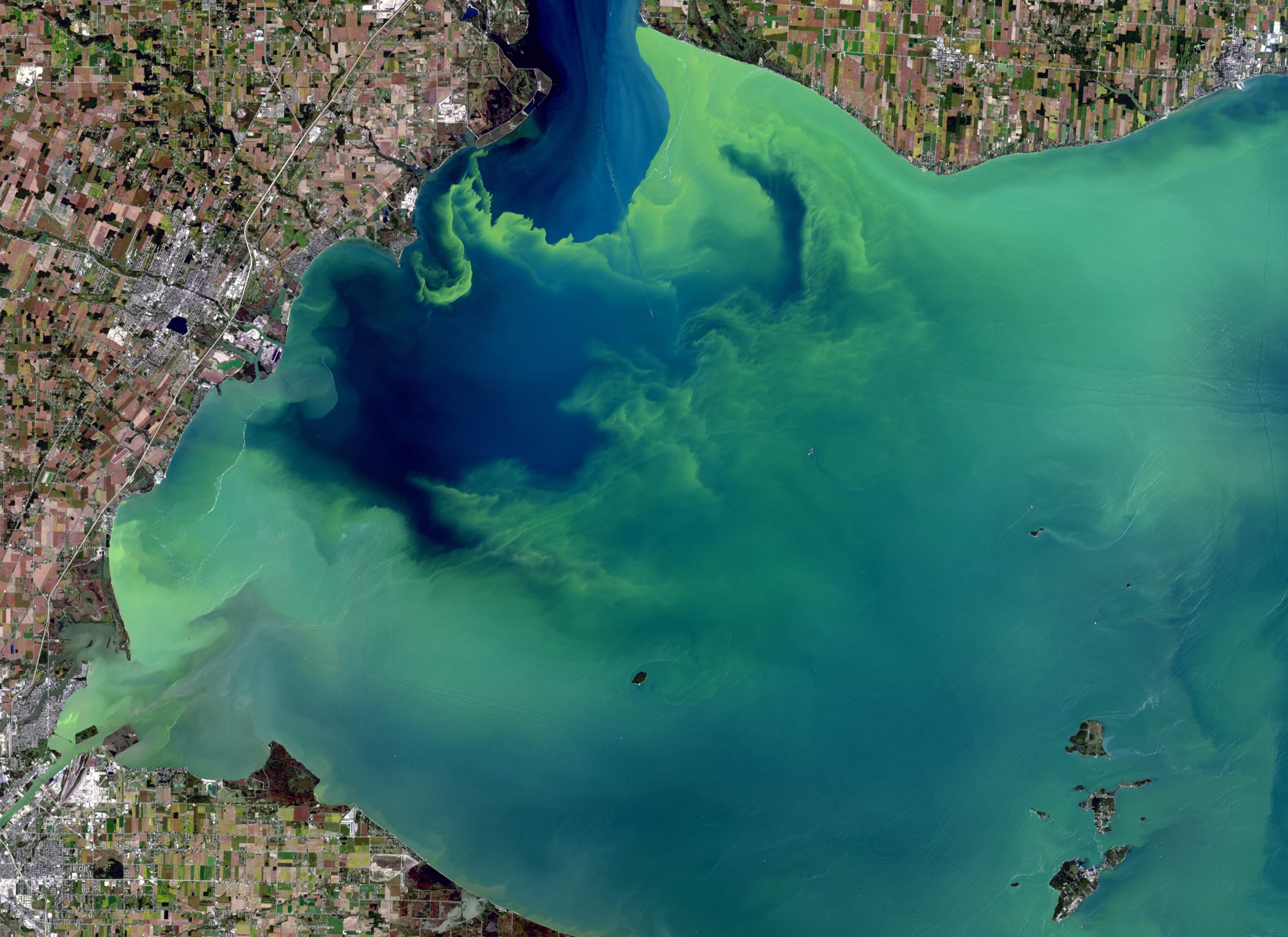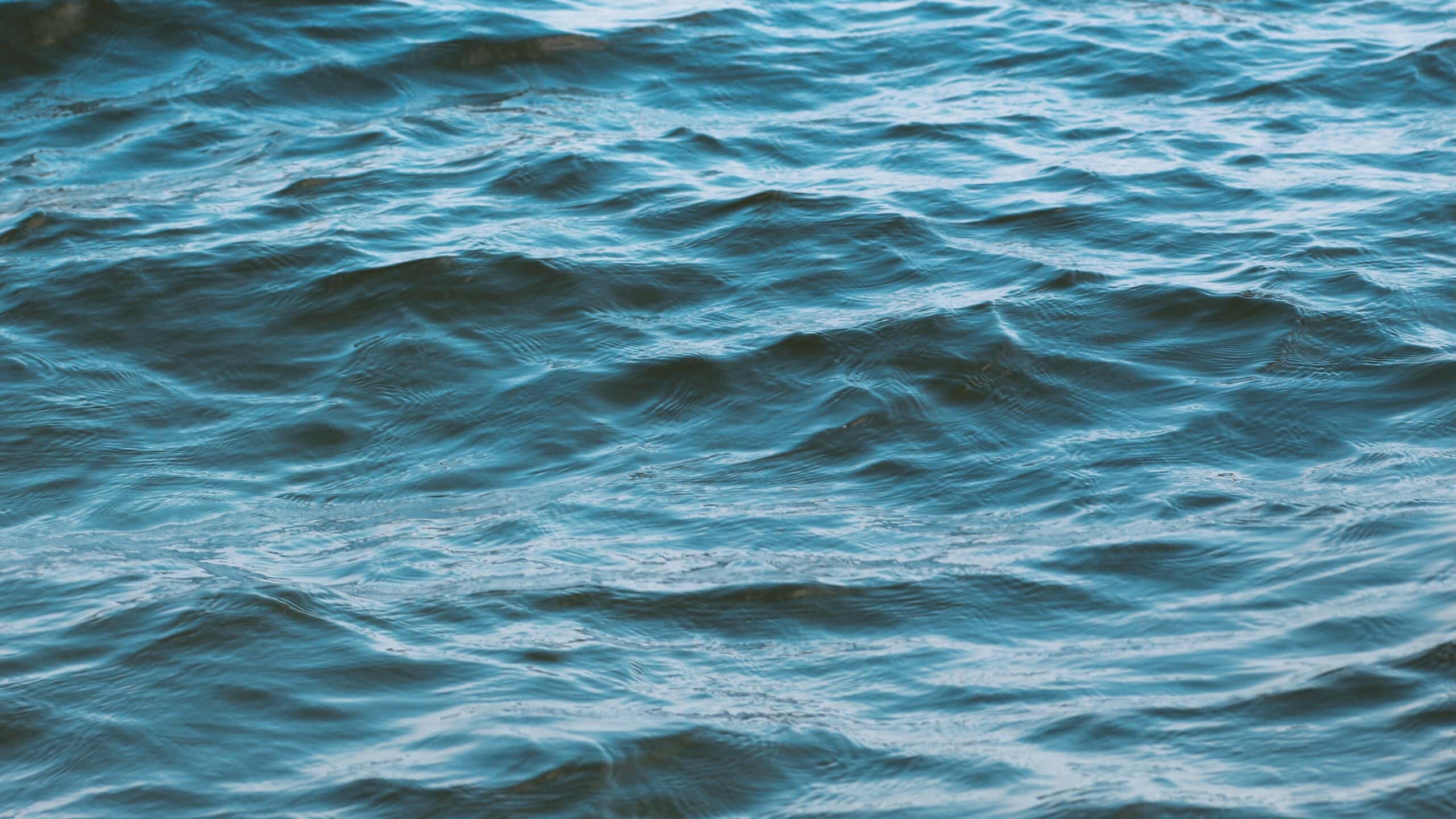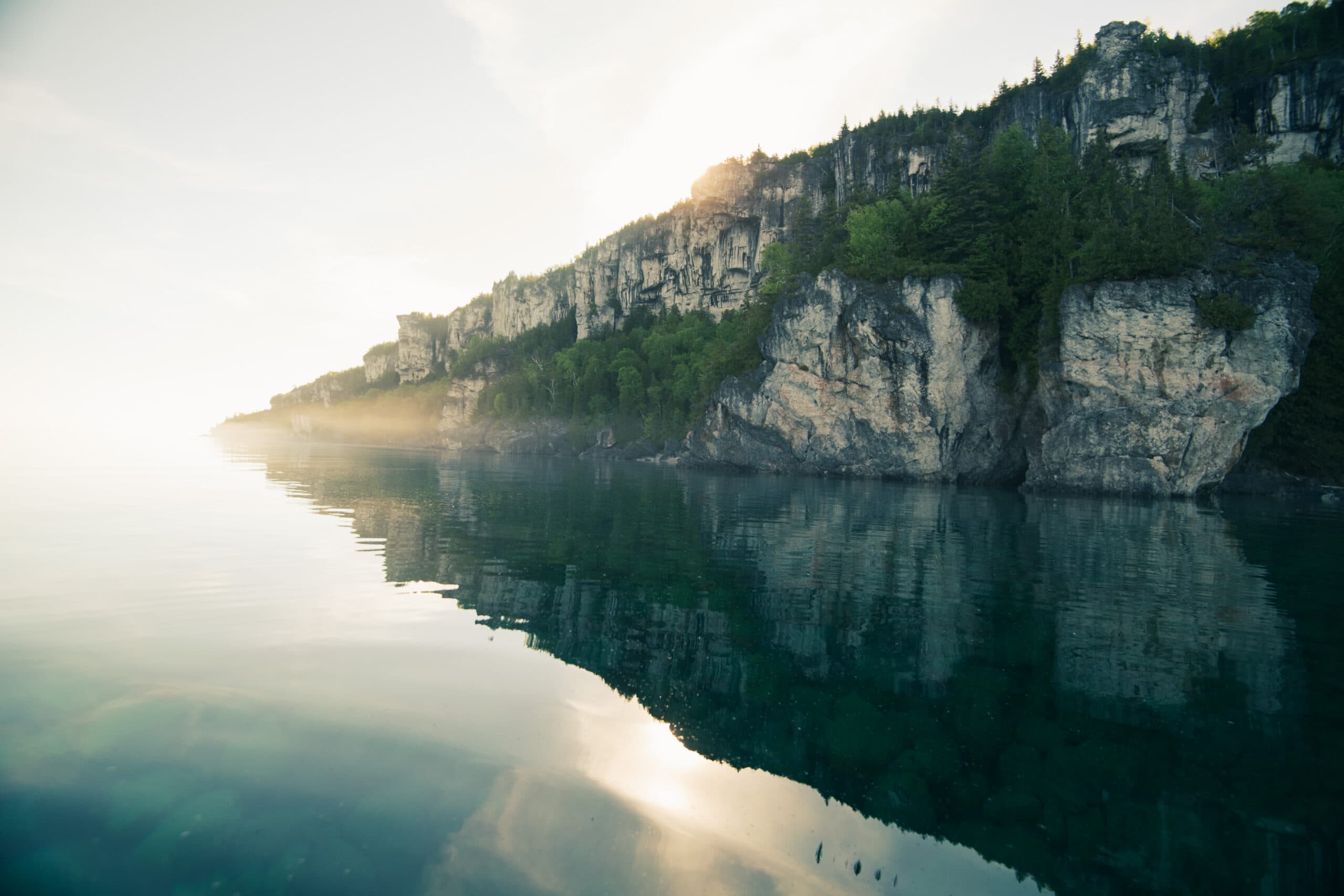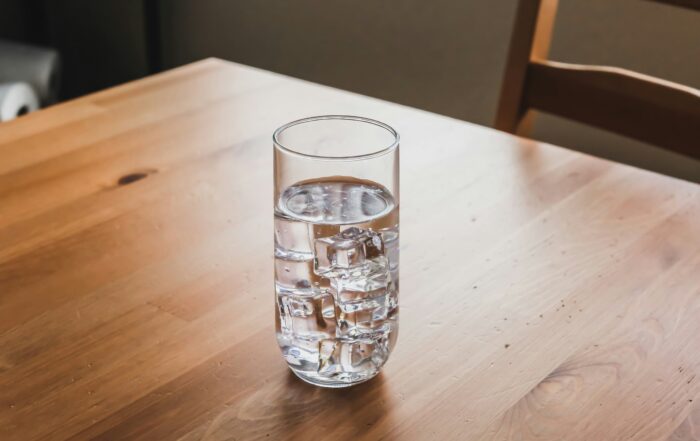
Landsat satellites captured this image of Lake Erie during a harmful algal bloom event in 2017. Photo by the United States Geological Survey (link)
The director of Michigan’s Department of Agriculture and Rural Development warns that Michigan’s efforts to reduce farm pollution haven’t solved the spread of toxic green algae that continues to plague Lake Erie. Tim Boring, a sixth-generation farmer who took the helm at the Department in March says “we’re not seeing progress in the way we want to see it.”
A 10-year strategic plan established in 2015 to reduce phosphorus spilling into Lake Erie by 40% by 2025 hasn’t worked for the states and provinces of Ohio, Michigan and Ontario.
In the Michigan State of the Basin Conference in December, Boring delivered a stark message. Regional governments must adopt watershed-friendly policies and target longstanding practices that threaten Lake Erie as well as rural farming communities.
Boring states, “this current system has prioritized simple commodity production,” meaning single-crop farms that require heavy amounts of fertilizer. “It just gives us a situation where we continue to lose crop diversity and [they’re] increasingly susceptible to economic and environmental shocks.”
Unlike wastewater effluent and industrial pollution, agricultural run-off, so-called “non-point” pollution, isn’t regulated under state or federal law.
Boring advocates that the states and provinces play a larger role in protecting small farms and sees the challenge as an opportunity for regenerative agriculture. Boring encourages farmers to build healthy soils, plant cover crops and ration artificial fertilizers.
Solving the phosphorus problem in Lake Erie will require change across the basin. The state of Michigan is set to release its revised action plan for Lake Erie in the coming months.
Nearly $5000 raised in Grandma Gail’s Polar Plunge

Lake Ontario on a cold day. Photo by Omar Flores (Unsplash: Link)
Fancy a January swim in Lake Ontario? That’s exactly how Grandmother Gail McTague of the Kingston Grandmothers Connection decided to spend her New Year’s Eve. In the organization’s third annual Polar Plunge, Grandma Gail reportedly danced her way into the icy waters of Portsmouth Olympic Harbour, surrounded by cheering onlookers. This year, she managed to stay in the lake for 10 minutes, doubling her previous record from last year!
Grandma Gail does the Annual Polar Plunge to raise funds for the Stephen Lewis’s Grandmothers to Grandmothers Campaign — a non-governmental organization which supports grandmothers in “the 14 countries that have been hardest hit by the HIV epidemic in Africa.” In an emerging crisis, these African grandmothers are raising millions of children who have been orphaned by AIDS and HIV-related illnesses. The Grandmother’s Collective says “Everything we do is to better the lives of our grandmother sisters in Africa, and the children they care for.”
Grandmother Gail’s 2023 Polar Plunge raised $4,620.00! Donations can still be made by E-Transfer to kingstongrandmotherdonation@gmail.com. In the message, write “Polar Plunge.”
Canada goslings in December

Unattended goose eggs on the shores of Lake Huron. Photo by Scott Parent
In his 40 years of working as a wildlife specialist, Brian Salt has never seen geese hatch eggs in the early winter, but this year is different. Late December, a mother goose was spotted with two goslings near London Ontario. “It’s not likely that they will survive,” said Salt. Typically, eggs should hatch in late April or early May so that the goslings have the right environmental conditions to survive their early days.
Gordon McBean, climate activist and professor emeritus in geography and environment at Western University, blames the out-of-season births on warm weather from a changing climate. “The temperature is changing at a rate much more rapidly than has historically been the case,” said McBean. “[This] confuses the animals … Their biology is such that they respond to certain temperature conditions, and they’re thinking it’s spring.”
But soon it won’t just be geese feeling the heat. Beyond changes in animal behaviour, McBean worries that flooding, fires and habitat changes will further disrupt wildlife, entire ecosystems, and ultimately humans. “There are all kinds of … multidimensional implications of climate change as it’s happening,” says McBean. Climate change “also affects the occurrence of flooding events and that affects the wildlife, but there’s also affects [on] Canadians in their homes and properties,”.
With climate change continuing to accelerate, Salt fears these changes may be here to stay. “Young people today are growing up with [this] new reality and it seems normal,” said Salt. “We’re not headed in the right direction.”
Grassroots initiative spearheads the creation of a UNESCO Global Geopark for all of Georgian Bay.

Georgian Bay at Lion’s Head Provincial Park. Photo by Scott Parent
From the UNESCO website: UNESCO Global Geoparks are single, unified geographical areas where sites and landscapes of international geological significance are managed with a holistic concept of protection, education and sustainable development.
If approved, the Geopark will be given its designation for a period of four years followed by a revalidation process. The Georgian Bay Geopark Network involves Professor Nick Eyles — the foremost expert on the geology of Georgian Bay, First Nations leadership, municipalities, conservation groups, educators, local business and tourism experts as well as permanent and seasonal residents of Georgian Bay.
The study of the geology surrounding the Georgian Bay area is the bedrock of modern global understanding of how continents shape and move. Ancestors of today’s local Indigenous Peoples also witnessed the Wisconsin Glacier’s retreat to the north — a geological procession that shaped the culture of the original peoples of the area as well as the landscapes.
The initiative sparks a shared mission “to showcase the Bay’s extraordinary Geo-heritage to Canada and the world, building knowledge and community resilience while promoting sustainable tourism and long-term economic development” for the region.
The Geopark adheres to Two Eyed Seeing as a guiding principle, working together with the Indigenous community at large to achieve a balanced perspective for environmental conservation.
Learn more about the Georgian Bay Geopark Network here.
Watershed Wednesdays are our weekly roundup of the insightful, intriguing, important and inspiring news from around the Great Lakes-St. Lawrence watershed.



